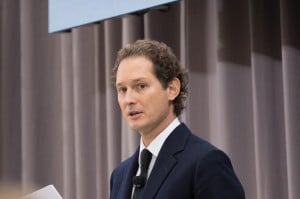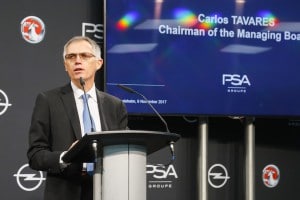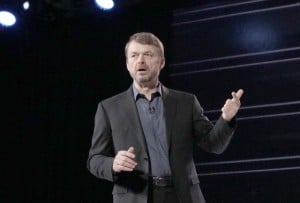As quickly as it became a possibility, the potential merger of Fiat Chrysler and Peugeot appears to have become a reality with the two automakers tentatively agreeing to a merger.
Peugeot’s board of directors approved the deal earlier Wednesday while the FCA board is meeting later this evening to review the final terms. The agreement was first reported by the Wall Street Journal citing sources familiar with the deal.
Once final, the resulting company would become the world’s fourth-largest automaker with a value of $48.4 billion. Neither company has issued a confirmation of the report. However, they did issue very similar statements Tuesday confirming they were talking.
(Parlez Vous Francais? FCA May Have New French Partner: Peugeot)
“Following recent reports on a possible business combination between Groupe PSA and FCA Group, Fiat Chrysler Automobiles N.V. … confirms there are ongoing discussions aimed at creating one of the world‘s leading mobility Groups. FCA has nothing further to add at this time,” the company said.
Fiat Chrysler Chairman John Elkann will be chairman of the newly merged company. Peugeot CEO Carlos Tavares retains that title in the new company. No word on what role FCA CEO Mike Manley will take. Elkann and Tavares would have seats on the board of the new company, which would comprise six Peugeot appointees, including Tavares, and five from Fiat Chrysler, the Journal reported.
The deal calls for Peugeot to pay €3 billion to its shareholders from the sale of a stake in auto parts maker Faurecia, while Fiat Chrysler will pay its shareholders a dividend of €5 billion and would also distribute the proceeds from the sale of its Comau unit, which is valued at about €250 million, the report said. The U.S. and French governments have been briefed on the deal.
(FCA Scuttles Deal With Renault, Blames French Government)
Fiat Chrysler has been looking for a partner for a long time. Former CEO Sergio Marchionne, who passed away last summer, approached just about every automaker under the sun looking for a partner, only to be rebuffed by all of them.
However, his successor, Mike Manley took up the mantle, engaging in talks with Renault. The deal appeared to be moving forward quickly, at least until Renault’s own Japanese affiliate, Nissan, began raising objections. In turn, the French government pushed to delay negotiations, prompting Manley to scrub the talks.
But FCA officials made it clear they remained open to other options. And for good reason, according to industry observers. The carmaker has been a laggard in terms of developing two key technologies considered critical to the future of the auto industry: electrified and autonomous vehicles. The billions required to bring those technologies to market would stretch FCA’s thin budget, they warn.
(A New Partner for Fiat Chrysler? Peugeot Says Maybe)
For its part, PSA has already been working on both those technologies. More significantly, since the arrival of CEO Tavares – Renault’s former second-in-command – six years ago, the French company’s fortunes have improved significantly. It demonstrated that turnaround with the recent acquisition of Opel-Vauxhall, long the money-losing subsidiary of GM. Within a year the German operation was in the black for the first time in two decades.



